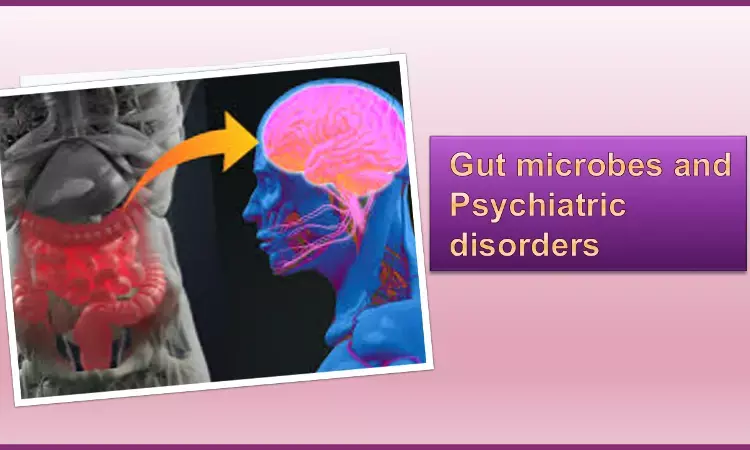- Home
- Medical news & Guidelines
- Anesthesiology
- Cardiology and CTVS
- Critical Care
- Dentistry
- Dermatology
- Diabetes and Endocrinology
- ENT
- Gastroenterology
- Medicine
- Nephrology
- Neurology
- Obstretics-Gynaecology
- Oncology
- Ophthalmology
- Orthopaedics
- Pediatrics-Neonatology
- Psychiatry
- Pulmonology
- Radiology
- Surgery
- Urology
- Laboratory Medicine
- Diet
- Nursing
- Paramedical
- Physiotherapy
- Health news
- Fact Check
- Bone Health Fact Check
- Brain Health Fact Check
- Cancer Related Fact Check
- Child Care Fact Check
- Dental and oral health fact check
- Diabetes and metabolic health fact check
- Diet and Nutrition Fact Check
- Eye and ENT Care Fact Check
- Fitness fact check
- Gut health fact check
- Heart health fact check
- Kidney health fact check
- Medical education fact check
- Men's health fact check
- Respiratory fact check
- Skin and hair care fact check
- Vaccine and Immunization fact check
- Women's health fact check
- AYUSH
- State News
- Andaman and Nicobar Islands
- Andhra Pradesh
- Arunachal Pradesh
- Assam
- Bihar
- Chandigarh
- Chattisgarh
- Dadra and Nagar Haveli
- Daman and Diu
- Delhi
- Goa
- Gujarat
- Haryana
- Himachal Pradesh
- Jammu & Kashmir
- Jharkhand
- Karnataka
- Kerala
- Ladakh
- Lakshadweep
- Madhya Pradesh
- Maharashtra
- Manipur
- Meghalaya
- Mizoram
- Nagaland
- Odisha
- Puducherry
- Punjab
- Rajasthan
- Sikkim
- Tamil Nadu
- Telangana
- Tripura
- Uttar Pradesh
- Uttrakhand
- West Bengal
- Medical Education
- Industry
Major psychiatric disorders share common gut-microbiota alterations, JAMA study

Recent evidence has emerged regarding significant links between gut bacteria and various psychiatric disorders. But, do psychiatric disorders present with distinct or shared gut microbial alterations?
Patients with depression, bipolar disorder, schizophrenia, and anxiety may share a common perturbation of gut microbiota- as shown by a recent systematic review and meta-analysis published recently in JAMA Psychiatry. The study conducted by Nikolova et al has suggests a common transdiagnostic pattern of gut organisms with depletion of certain anti-inflammatory butyrate-producing bacteria and an enrichment of pro-inflammatory bacteria is common to afore-mentioned psychiatric disorders and may serve as a potential biomarker.
Preclinical studies have consistently demonstrated that fecal microbiota transplants from patients with a wide range of psychiatric conditions result in the development of the behavioral and physiological profile of the condition in germ-free mice. This suggests that psychiatric disorders may be associated with a distinct pattern of microbial perturbations, which may serve as a biomarker.
The current study included a total of 59 case-control studies, evaluating diversity or abundance of gut microbes in adult populations with major depressive disorder, bipolar disorder, psychosis and schizophrenia, anorexia nervosa, anxiety, obsessive compulsive disorder, posttraumatic stress disorder, or attention-deficit/hyperactivity disorder were included.
A total of 34 studies provided data and were included in alpha diversity meta-analyses. Significant decrease in microbial richness in patients compared with control participants were found. There was a small decrease in phylogenetic diversity.
Differences in beta diversity were consistently observed only for major depressive disorder and psychosis and schizophrenia. Depleted levels of Faecalibacterium and Coprococcus and enriched levels of Eggerthella were consistently shared between major depressive disorder, bipolar disorder, psychosis and schizophrenia, and anxiety, suggesting these disorders are characterized by a reduction of anti-inflammatory butyrate-producing bacteria, while pro-inflammatory genera are enriched. The confounding associations of region and medication were also evaluated.
Eggerthella is associated with gastrointestinal inflammation, while Faecalibacterium has known anti-inflammatory properties and is depleted in immune-mediated inflammatory diseases. These associations are likely mediated by short-chain fatty acid butyrate, as Faecalibacterium and Coprococcus are involved in its production, while Eggerthella has been associated with its depletion. Butyrate has a key role in maintaining mucosal integrity and reducing inflammation via macrophage function and decrease in proinflammatory cytokines, while increasing anti-inflammatory mediators.
Paradoxically, the family Lactobacillaceae and member genus Lactobacillus, strains from which are components of probiotic supplements and linked to positive health outcomes, were enriched in MDD, psychosis and schizophrenia, and bipolar disorder
This systematic review and meta-analysis found that gut microbiota perturbations were associated with a transdiagnostic pattern with a depletion of certain anti-inflammatory butyrate-producing bacteria and an enrichment of pro-inflammatory bacteria in patients with depression, bipolar disorder, schizophrenia, and anxiety.
Source: JAMA Psychiatry: doi:10.1001/jamapsychiatry.2021.2573
M.B.B.S, M.D. Psychiatry
M.B.B.S, M.D. Psychiatry (Teerthanker Mahavir University, U.P.) Currently working as Senior Resident in Department of Psychiatry, Institute of Human Behaviour and Allied Sciences (IHBAS) Dilshad Garden, New Delhi. Actively involved in various research activities of the department.
Dr Kamal Kant Kohli-MBBS, DTCD- a chest specialist with more than 30 years of practice and a flair for writing clinical articles, Dr Kamal Kant Kohli joined Medical Dialogues as a Chief Editor of Medical News. Besides writing articles, as an editor, he proofreads and verifies all the medical content published on Medical Dialogues including those coming from journals, studies,medical conferences,guidelines etc. Email: drkohli@medicaldialogues.in. Contact no. 011-43720751


